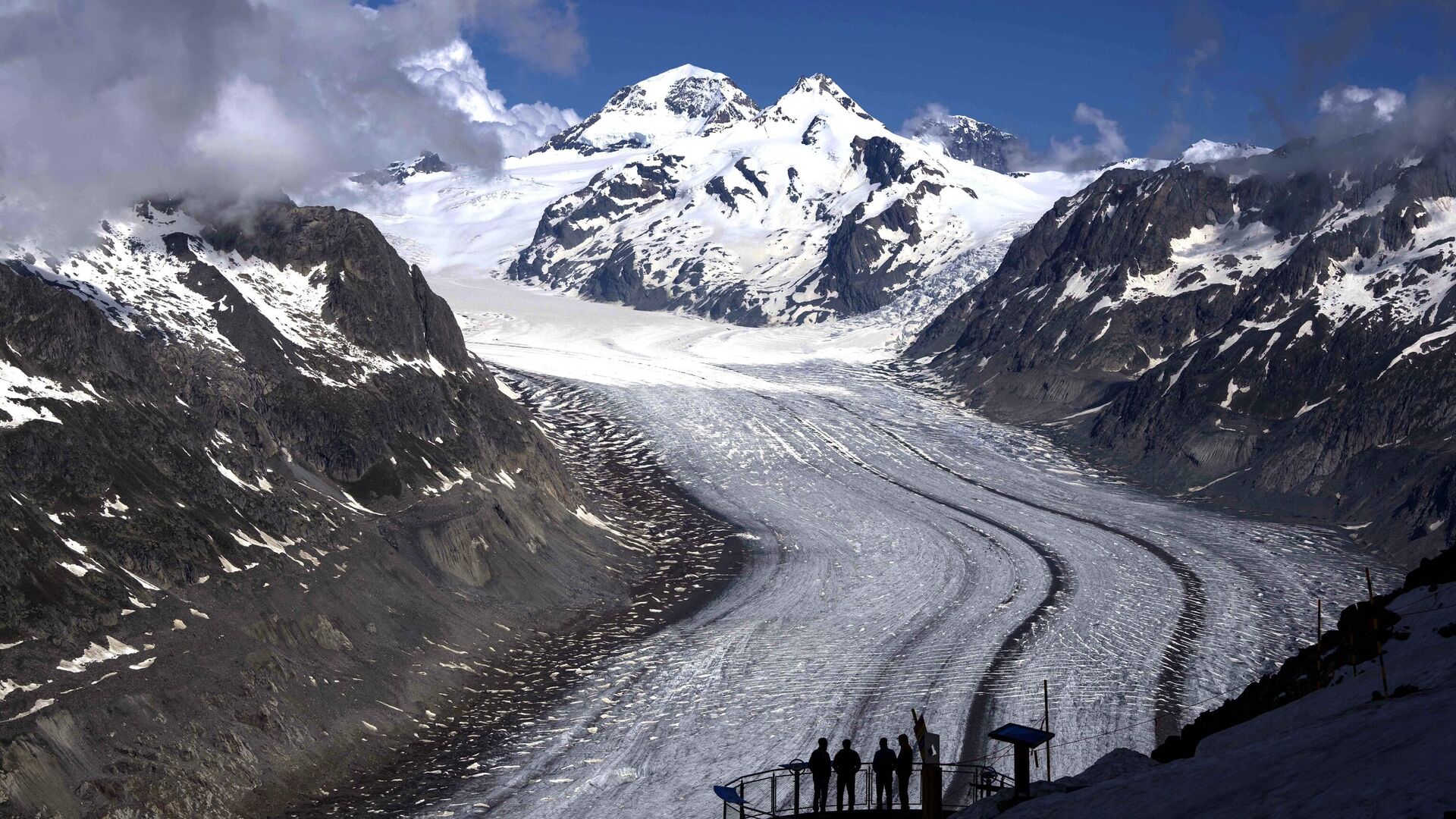https://sputnikglobe.com/20230929/glaciers-in-switzerland-slim-down-10-in-just-two-years-1113785990.html
Glaciers in Switzerland Slim Down 10% in Just Two Years
Glaciers in Switzerland Slim Down 10% in Just Two Years
Sputnik International
The time period included a 6% loss in volume in 2022 alone, the biggest thaw since measurements began. Some glaciers have disappeared entirely.
2023-09-29T04:02+0000
2023-09-29T04:02+0000
2023-09-29T03:59+0000
beyond politics
switzerland
glacier
climate change
global warming
science & tech
https://cdn1.img.sputnikglobe.com/img/07e7/09/1d/1113785832_0:160:3072:1888_1920x0_80_0_0_510e2f3a9400c8d467e81f190488d7cd.jpg
The country of Switzerland is known for its chocolate, clocks, and large glaciers, but at least one of those heritages appears to be under threat as scientists document significant ice melt in the Central European nation.All together, Swiss glaciers have lost 10% of their volume over the last two years, according to analysis from the Swiss Academy of Sciences. Stunningly, that’s the same amount of volume lost during an entire 30 years from 1960 to 1990.Researchers say the melt is due to climate change brought about by human burning of fossil fuels. Climate disruption is causing hot summers and winters, they said, which results in less snow. Officials are also reporting the collapse of glacier tongues, the term for parts of glaciers that extend into bodies of water.Scientists have been forced to stop measuring glacial ice in some locations that disappeared entirely.“The losses we’ve seen in 2022 and 2023 are simply mind-blowing and beyond everything we have experienced so far.”A recent report showed that as much as half of the world’s glaciers could vanish by the end of the century even if proposed targets are met. Glaciers play a crucial role in providing water for various populations.
switzerland
Sputnik International
feedback@sputniknews.com
+74956456601
MIA „Rossiya Segodnya“
2023
Sputnik International
feedback@sputniknews.com
+74956456601
MIA „Rossiya Segodnya“
News
en_EN
Sputnik International
feedback@sputniknews.com
+74956456601
MIA „Rossiya Segodnya“
Sputnik International
feedback@sputniknews.com
+74956456601
MIA „Rossiya Segodnya“
switzerland, glaciers, climate change, disappearing glaciers
switzerland, glaciers, climate change, disappearing glaciers
Glaciers in Switzerland Slim Down 10% in Just Two Years
The time period included a 6% loss in volume in 2022 alone, the biggest thaw since measurements began. Some glaciers have disappeared entirely.
The country of Switzerland is known for its chocolate, clocks, and large glaciers, but at least one of those heritages appears to be under threat as scientists document significant ice melt in the Central European nation.
All together, Swiss glaciers have lost 10% of their volume over the last two years, according to analysis from the Swiss Academy of Sciences. Stunningly, that’s the same amount of volume lost during an entire 30 years from 1960 to 1990.
Researchers say the melt is due to climate change brought about by human burning of fossil fuels. Climate disruption is causing hot summers and winters, they said, which results in less snow. Officials are also reporting the collapse of glacier tongues, the term for parts of glaciers that extend into bodies of water.
Scientists have been forced to stop measuring glacial ice in some locations that disappeared entirely.
"I hope that this is one more piece of evidence that really shows that the climate system is really in a very critical state," said Matthias Huss of GLAMOS, the Swiss glacier-monitoring organization that gathered data for the report. “This is much more impressive than seeing another graph with rising temperatures.”
“The losses we’ve seen in 2022 and 2023 are simply mind-blowing and beyond everything we have experienced so far.”
A recent report showed that as much as half of the world’s glaciers could vanish by the end of the century even if proposed targets are met. Glaciers play a crucial role in providing water for various populations.


